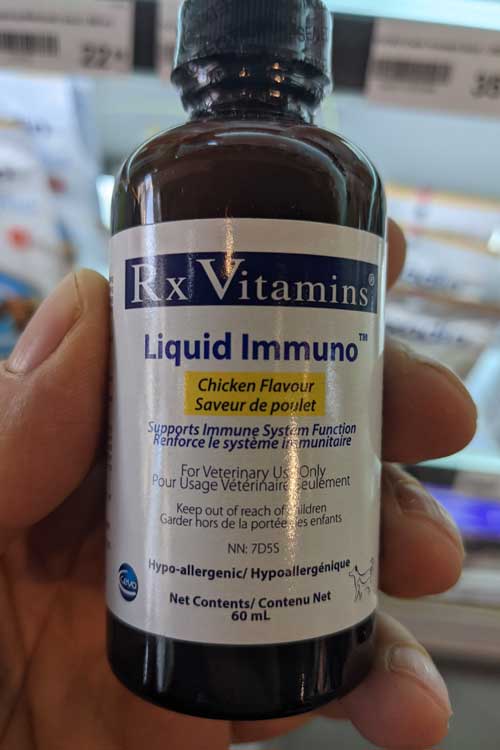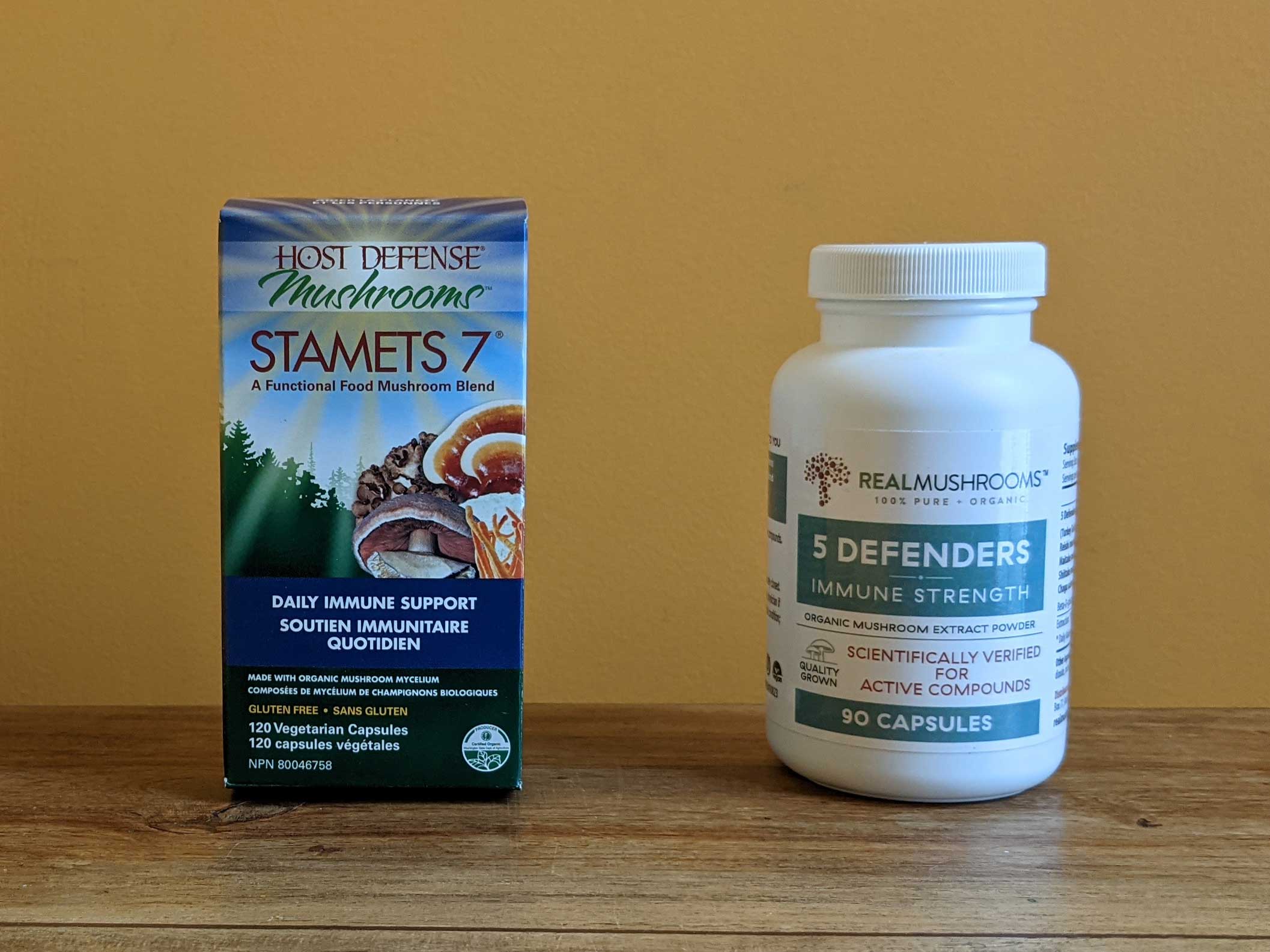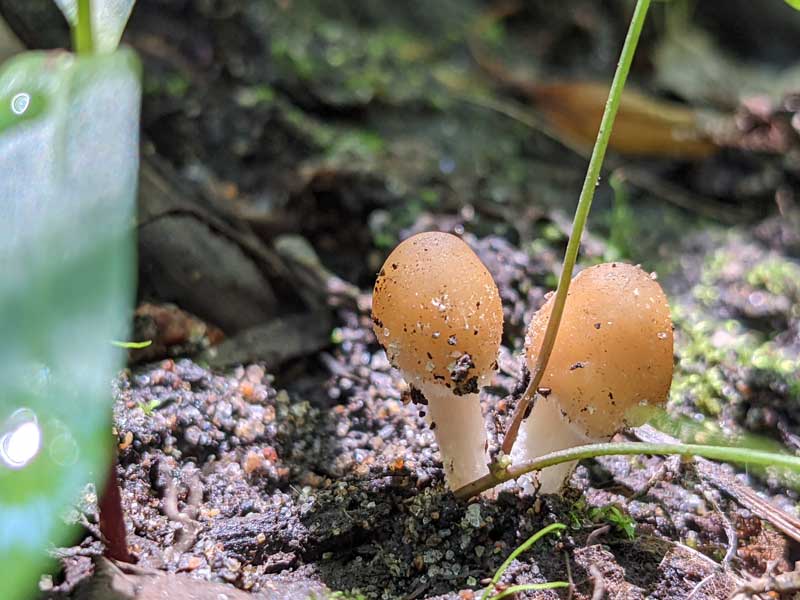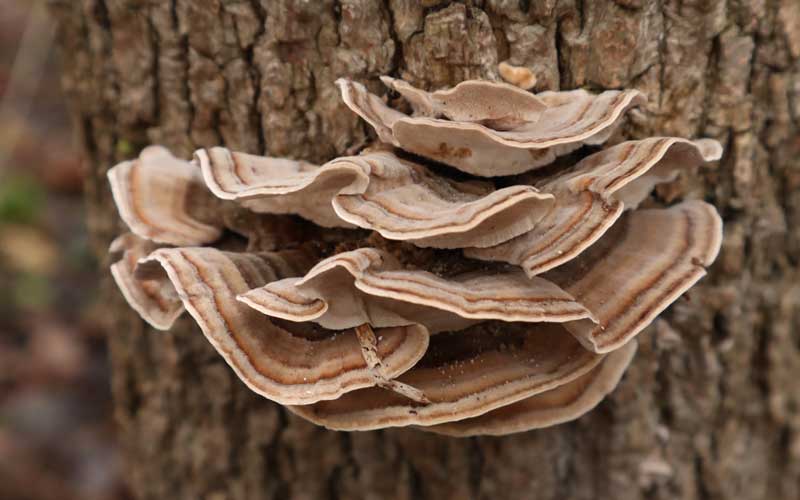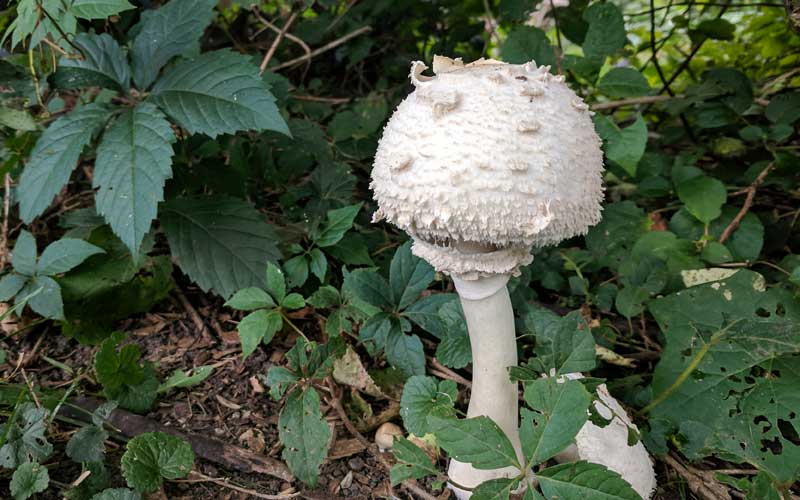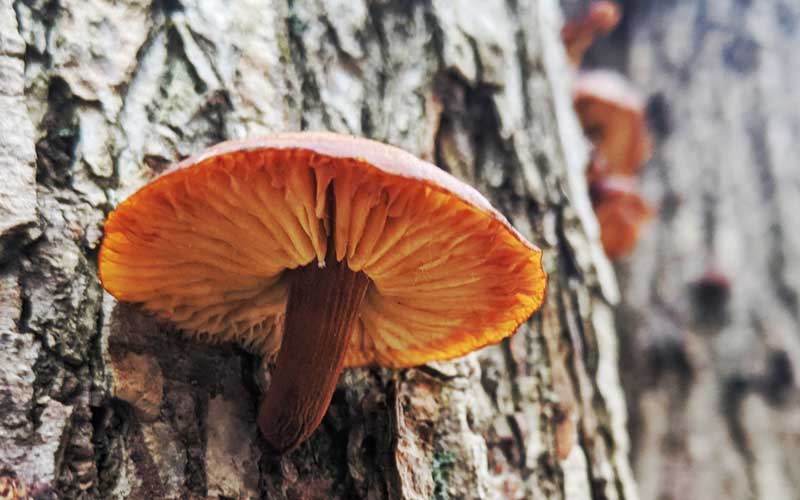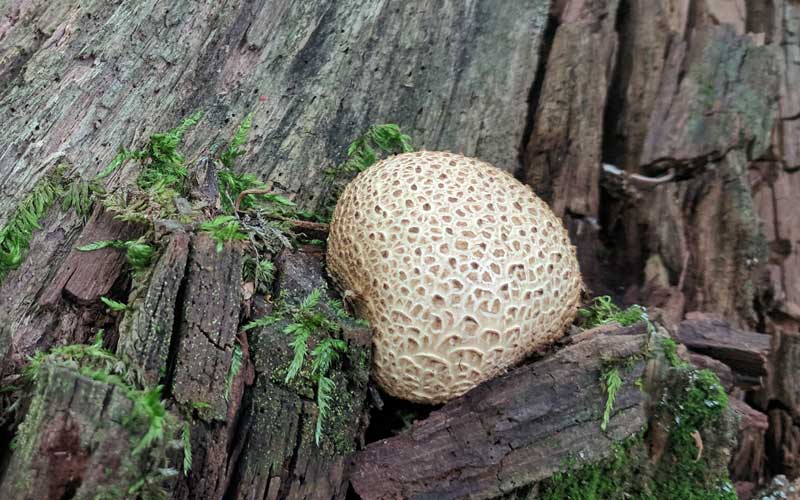Are mushrooms good for your dog’s health?
When it comes to mushrooms, pets are a lot like us humans.
Some mushrooms are good for them, and some mushrooms are dangerous.
Fortunately, there aren’t many varieties of mushrooms that are toxic and that pets are attracted to. But there are a handful you have to look out for.
The most common causes of mushroom poisoning in pets come from Amanita phalloides and Inocybe. These both have a fishy odor that dogs and even cats can be drawn to.
The toxins in these mushrooms can make your dog very sick, or worse.
Prevention is the best defense against mushroom poisonings in your pets.
Don’t allow Fido to eat any old mushroom he stumbles on, and keep your yard clear of wild mushrooms.
Just to repeat myself - because we want to keep our dogs safe - don't let your dog eat any mushrooms outside, either in your own yard or garden, or on walks.
If you do suspect your pet has eaten a poisonous mushroom, try to collect a sample of the mushroom for your vet. It can help in determining the best course of treatment.
When it comes to canine cancer, can mushrooms be a life-saver?
It’s true that a small handful of mushroom varieties present a grave health threat for your pets.
But it’s also true that other mushrooms — particularly medicinal mushrooms like Maitake, Shiitake, Reishi, and Turkey Tail — can support your pet’s health.
And, as it turns out, many even extend their life in the face of certain cancers.
While clinical studies are few, there was one conducted at the University of Pennsylvania School of Veterinary Medicine that is worth noting. The study was small, involving 15 dogs, but the results were impressive.
Each of the dogs in the study had been diagnosed with hemangiosarcoma. This cancer usually afflicts German shepherds and golden retrievers. There are chemotherapy treatments for the disease, but they don’t change life expectancy all that much, so many pet owners opt to forgo treatment and make their pets as comfortable as possible.
In this study, 15 dogs with hemangiosarcoma were given varying doses of polysaccharopeptide (PSP) derived from Turkey Tail mushrooms. The goal of the study was to determine if PSP would extend the life of the dogs versus dogs receiving no treatment.
Dogs that don’t receive any treatment for this invasive cancer live a median of 86 days after diagnosis.
Dogs in the study survived a median of 199 days, and some survived more than a year with no treatment other than PSP supplements. No adverse effects were recorded during the treatment.
Based on this study, it looks like PSP supplements are a safe, easy, and affordable way to extend the life of dogs with certain cancers.
Medicinal mushrooms support the general health of your dog, too.
Medicinal mushrooms like Reishi, Turkey Tail, Maitake, and Shiitake may be helpful in the treatment of several diseases — especially in dogs — and can also support general good health.
Raina Gollakner, a Doctor of Veterinary Medicine with a Masters in Public Health, points to the polysaccharides and glycoproteins in mushrooms as the key beneficial compounds for pet health.
While the studies on using medicinal mushrooms to prevent or treat cancers and other diseases in pets are limited, Dr. Gollakner says that anecdotal evidence surrounding the use of mushroom supplements in treating sicks pets is at least interesting… and that mushrooms are a treatment worth trying.
Because some of the compounds in mushrooms appear to be effective at lowering blood sugar and blood pressure, she recommends working with a vet if you decide to use mushroom supplements to support your pet’s health. “Follow your veterinarian’s directions and cautions very carefully as their directions may be significantly different from those on the label,” is her advice.
Ihor Basko, another Doctor of Veterinary Medicine, regularly uses mushrooms in his practice. He states that when it comes to natural medicine, “There’s not any one plant that can do as much as a mushroom can.”
He uses Reishi mushrooms to support heart health, immune function, liver function, and endurance. Shiitakes are useful for treating allergies and incontinence. He finds Maitake mushrooms help in managing diabetes in dogs and also ease liver problems. Turkey Tail mushrooms support digestive health. And Cordyceps may help with heart problems, asthma, and kidney function.
Choosing a mushroom supplement for your dog.
If you’re interested in supporting your dog's health with mushrooms, you have a lot of options.
You can make your own broth from fresh or dried mushrooms. Often you can find Shiitake mushrooms at the store and use them for this purpose.
You can buy dried mushrooms or mushroom powders online at a place like Real Mushrooms, and sprinkle them over your pet’s food.
Or you can buy mushroom supplements or treats specifically formulated for your pet. A quick search for “mushroom supplements for pets” will return a host of possibilities.
For example, FreshCap Mushrooms sells Shroomies for dogs.
Pets hold a special place in our hearts. These furry family members deserve the best, and it’s a nice surprise when one of the best things for their health is an affordable, all-natural treat like mushrooms.
Related Topics:
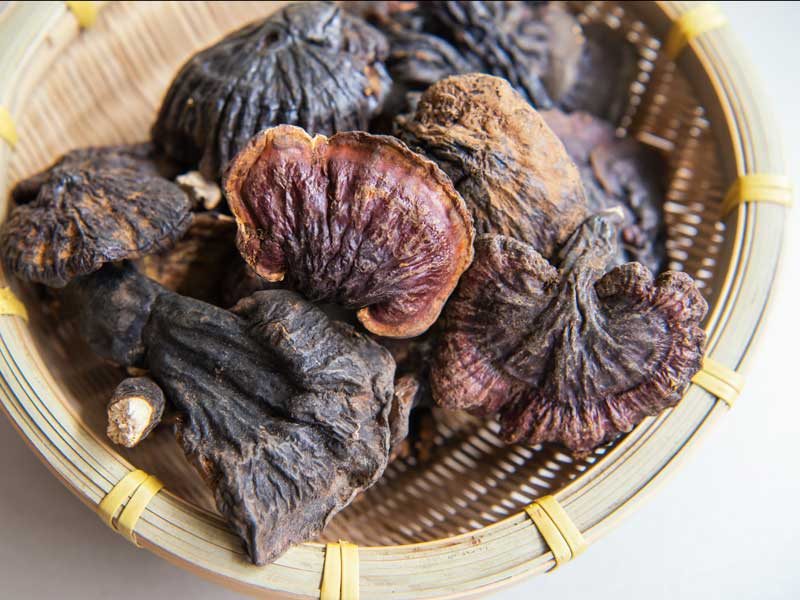
Medicinal mushrooms have been used by healers for thousands of years.
Medicinal mushrooms and fungi offer a variety of health benefits, many of them tied to supporting your natural immune system. Read the full article...
Choosing between two approaches in the world of mushroom supplements.
Mushroom supplements are derived either from myceliated grain, or from the mushroom itself. Which is the best? Read the full article…
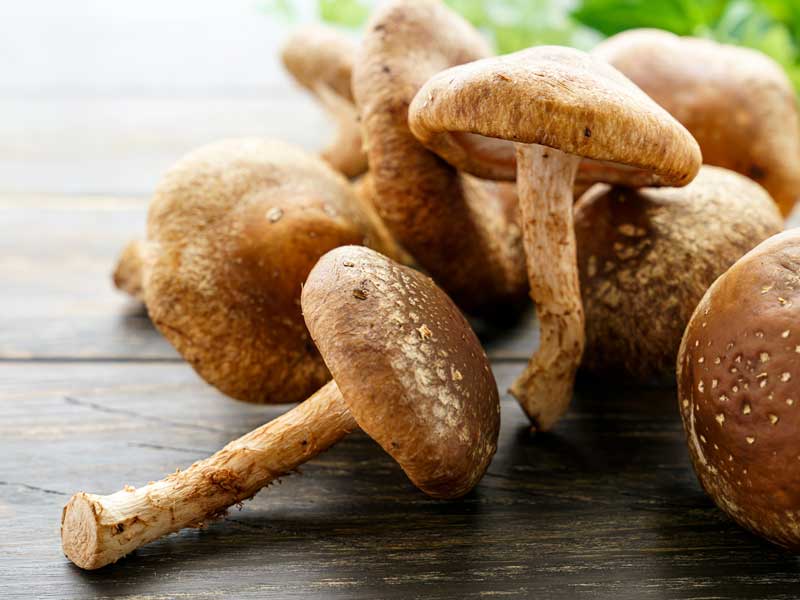
Shiitake Mushrooms are delicious and dense with nutrients.
Shiitake Mushrooms are one of the world’s most widely cultivated culinary mushrooms. But it also boast powerful medicinal qualities. More on Shiitake…

